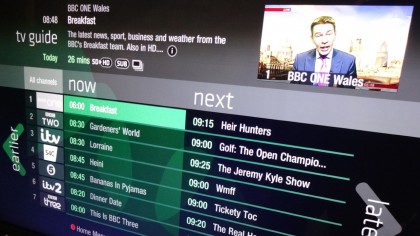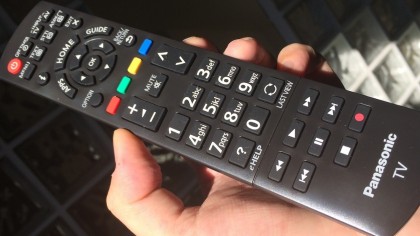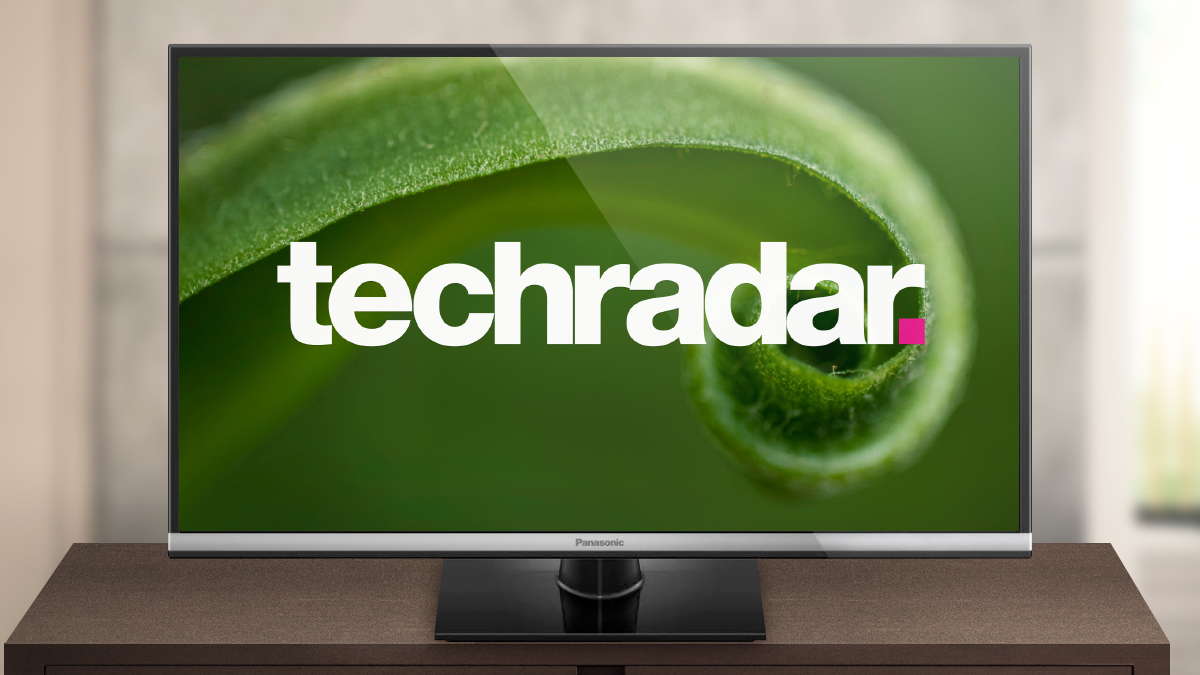Why you can trust TechRadar
Usability
My Home Cloud is adorable, and can be customised, so everything you could want from a TV screen can be catered for. Netflix addicts can put that app within easy reach, for example, by choosing one of the suggested layouts.
The best My Home Screen layout is the Freetime-centric Free Digital TV version, which puts around the screen shortcuts to the Freetime-powered TV Guide, On Demand, Search TV and the (forthcoming) Showcase sections. The use of colour is excellent, too, with bold green, blue, purple and yellow used on a black background.

Freetime's theoretical usability can't be doubted. Missed EastEnders last night? Scroll back to yesterday and watch it from iPlayer. It's easy, and it's quick, though only if there's enough processing power within the TV it's gracing. And that's my biggest concern about the TX-32AS600. Despite it being fitted with a dual core processing, there's worry that it doesn't have the necessary power to cope with what it's been given.
Digital media
The TX-42AS600 can stream and play files from a USB thumbdrive with formats ranging from MKV, AVI, AVC HD, MPEG-2, MP4, WMV and WMV HD video files to JPEG photos and MP3, M4A, FLAC, WAV and WMA music.

Digital file swapping doesn't end there; the TX-32AS600 can also be operated by the new Panasonic Remote 2 app for iOS and Android, which features Swipe & Share. As well as controlling the TV's central functions – though not Freetime – that app can find files on a PC or USB stick tethered or attached to the TX-32AS600, and play them on a smartphone or tablet. Clever stuff – though it's limited to MP4 files, JPEG photos, and MP3, M4A and WAV music files.
Sound
Audio power of 20W was never going to mimic home cinema, and the TX-32AS600 certainly needs a helping hand. The music setting proved the most helpful, nicely balancing what bass and treble range there is, though the mid-range is thin indeed.
While dialogue sounds fine and for everyday TV viewing the speakers just about tick the box, the best I can say about the TX-32AS600's speakers when it comes to serious TV watching is that there are slots for both digital optical audio and a headphones jack on the rear. Film fans and gamers will want to use one of those, and skip over the quiet background of the speech mode as well as the ineffective surround options.
Sign up for breaking news, reviews, opinion, top tech deals, and more.
Value
Considering what's on offer inside the TX-32AS600, it ought to be considered a good value TV, but the shine is taken from Freetime in particular by a lack of processing power. A dual core it may possess, but it's either not a very efficient one, or it's busy with other features. However, it's the so-so panel inside the TX-32AS600 that marks this down as a budget TV masquerading as a mid-ranger.

Jamie is a freelance tech, travel and space journalist based in the UK. He’s been writing regularly for Techradar since it was launched in 2008 and also writes regularly for Forbes, The Telegraph, the South China Morning Post, Sky & Telescope and the Sky At Night magazine as well as other Future titles T3, Digital Camera World, All About Space and Space.com. He also edits two of his own websites, TravGear.com and WhenIsTheNextEclipse.com that reflect his obsession with travel gear and solar eclipse travel. He is the author of A Stargazing Program For Beginners (Springer, 2015),
